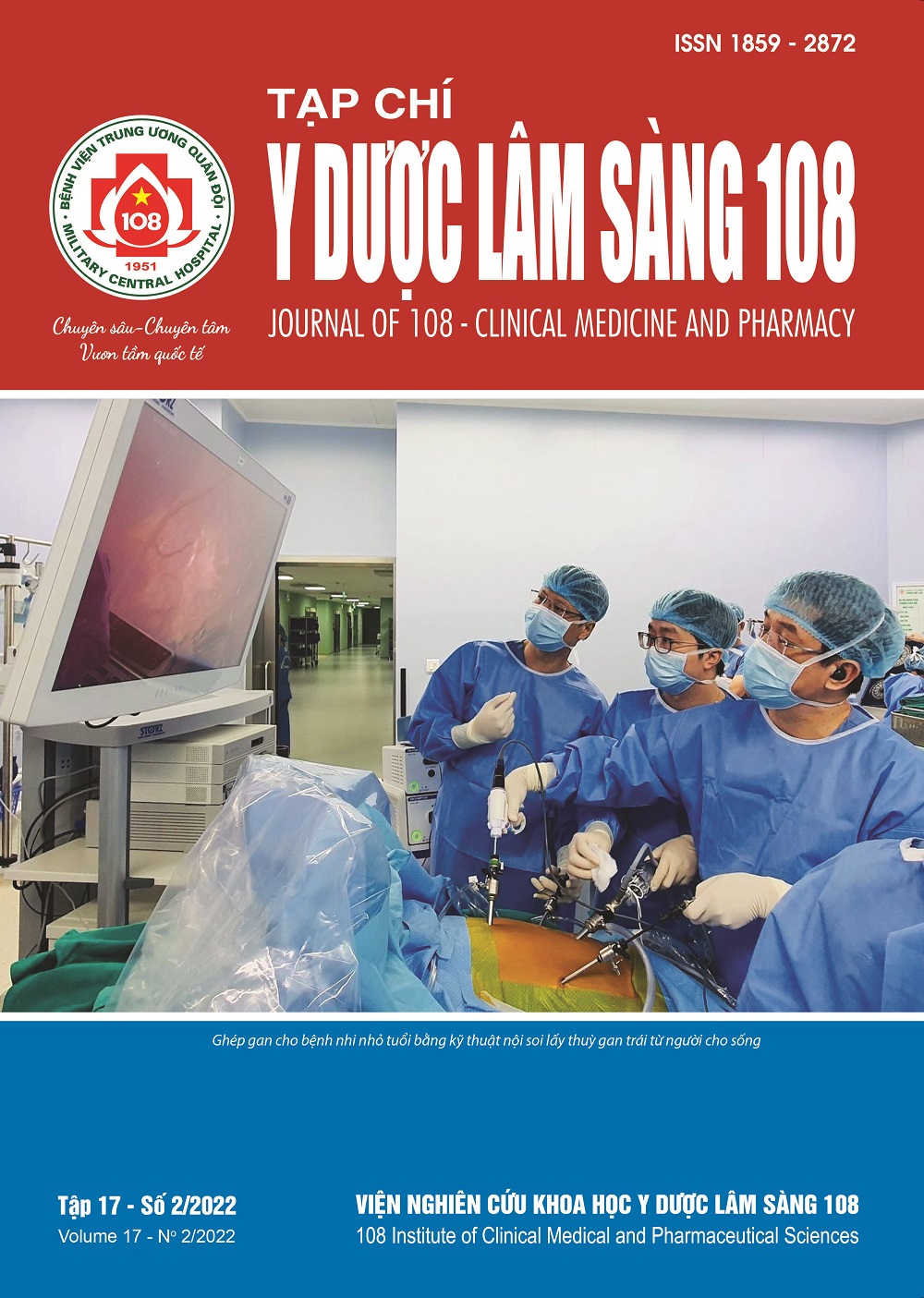Improvement of self-care behaviors and impact on the outpatient treatment of chronic heart failure at 108 Military Central Hospital
Main Article Content
Keywords
Abstract
Objective: To investigate the improved self-care behaviors and knowledge of patients with chronic heart failure after educational intervention at the Department of Medical Examination for Senior Staff - 108 Military Central Hospital and its initial impact on treatment results. Subject and method: 50 outpatients with chronic heart failure were educational interventions. All patients assess self-care behaviors (according to the EHFScB-9) scales and knowledge about heart failure (According to DHFKS) during the first visit and after three months of the educational intervention. The effect on treatment outcome based on the 6-minute walk test and NYHA class of heart failure. Results: Average age (67.3 ± 15.3 years), men (96%). The most cause of chronic heart failure was coronary artery disease (56%). At the 3rd month after counseling, the patient's self-care behavior (23.5 ± 5.1) improved compared to when enrolled in the study (26.8 ± 4.3), with p<0.05, most clearly in the behavioral subgroups related to fluid control (criteria 1, 4 and 5). The DHFKS scale after 3rd month improved significantly compared to when enrolled in the study (11.2 ± 3.9 vs. 9.2 ± 3.1), with p<0.05. The distance in the 6-minute walk test at the 3rd month (240.5m) was higher than that before the counseling intervention (223.5m), with p<0.05. The 6-minute walking distance was correlated with cognitive scores (r = 0.48), and with self-care behavior scores (r = -0.52), with p<0.05. Conclusion: This study has demonstrated the role of counseling to improve knowledge and skills in self-care behaviors for patients with chronic heart failure and help improve the effectiveness of treatment for patients.
Article Details
References
2. Nguyễn Hữu Duy (2019) Phân tích thực trạng sử dụng thuốc, kiến thức và hành vi tự chăm sóc của bệnh nhân suy tim tâm thu trong chương trình quản lý suy tim ngoại trú tại Bệnh viện Tim Hà Nội. Đại học Dược Hà Nội, tr. 122-125.
3. Nguyen Ngoc Huyen (2011) Factors related to self-care behaviors among older adults with heart failure in Thai Nguyen General Hospital, Vietnam, M.N.S. (Nursing Science). Burapha University: 78-99.
4. Ponikowski P, Voors AA, Anker SD et al; ESC Scientific Document Group (2016) ESC Guidelines for the diagnosis and treatment of acute and chronic heart failure. European Heart Journal 37: 2129-2200.
5. Vellone E, Jaarsma T et al (2014) The European Heart Failure self-care behaviour scale: New insights into factorial structure, reliability, precision and scoring procedure. Patient Educ Couns 94(1): 97-102.
6. Martje HL van der Wal, Tiny Jaarsma et al (2005) Development and testing of the dutch heart failure knowledge scale. European Journal of Cardiovascular Nursing (4): 273-277.
 ISSN: 1859 - 2872
ISSN: 1859 - 2872
